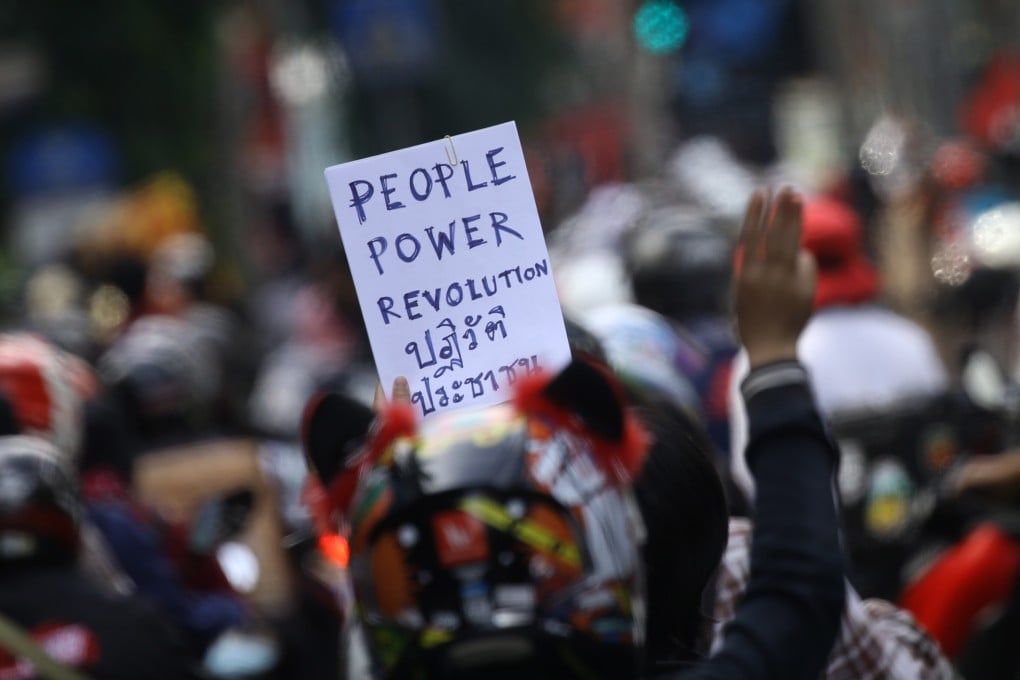Advertisement
As Prayuth’s Thailand teeters, is an election, coup or bitter stalemate next?
- As pressure on the prime minister ramps up on the streets and in parliament, experts warn a crackdown or martial law could be in the offing
- And as debate rages online about establishing a more democratic society, speculation is mounting about an unlikely comeback: former PM Thaksin Shinawatra
Reading Time:4 minutes
Why you can trust SCMP
5

Thailand’s combustible politics are ramping up on the streets, online, and in parliament, piling pressure on Prime Minister Prayuth Chan-ocha as he struggles to manage the pandemic as well as a once-in-a-generation economic wipeout. But experts warn this pro-democracy momentum could force the hand of the former army chief, who is more inclined towards control than compromise.
Some fear the near-daily protests – which are leaving parts of downtown Bangkok shrouded in plumes of tear gas, with broken glass underfoot – have started the countdown towards a crackdown, martial law, and another coup.
“General Prayuth may launch a coup d’etat against himself simply to cancel democracy and declare martial law,” said prominent political commentator Voranai Vanijaka of the premier, who headed the junta that ruled Thailand after the army seized power from a civilian government in 2014.
Advertisement
The kingdom has a long history of bloody military crackdowns to quash pro-democracy movements, often using violence on the streets as a pretext for an army-led reset.
“Another scenario is a coup by a faction of the military dissatisfied with his management, his rule of the country,” Voranai added.
Advertisement
Advertisement
Select Voice
Select Speed
1.00x